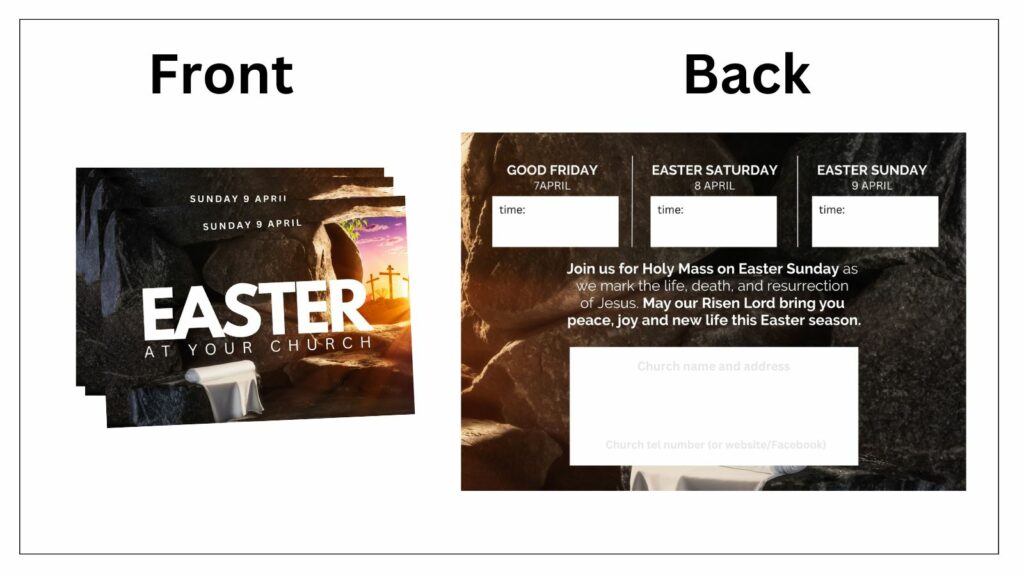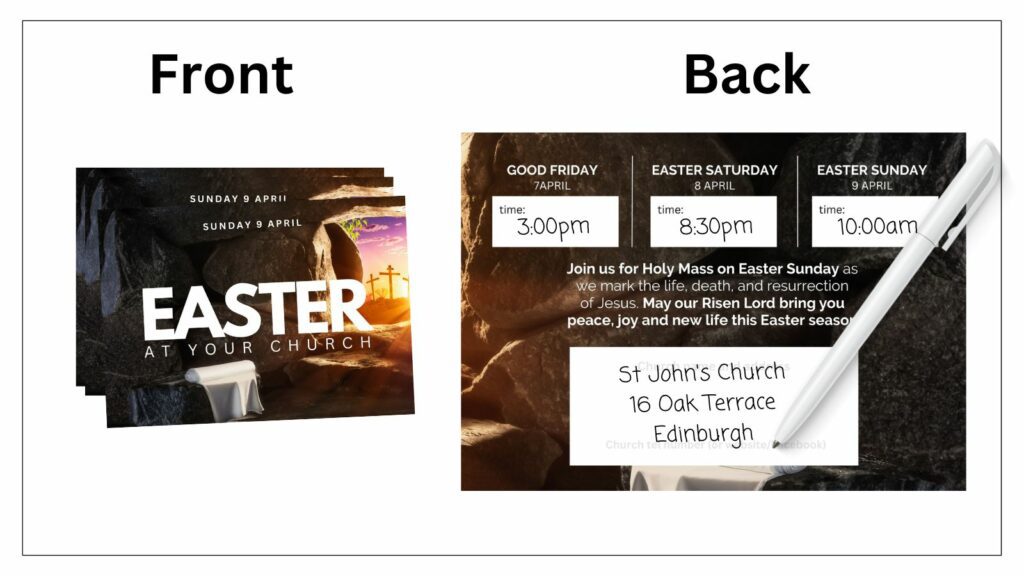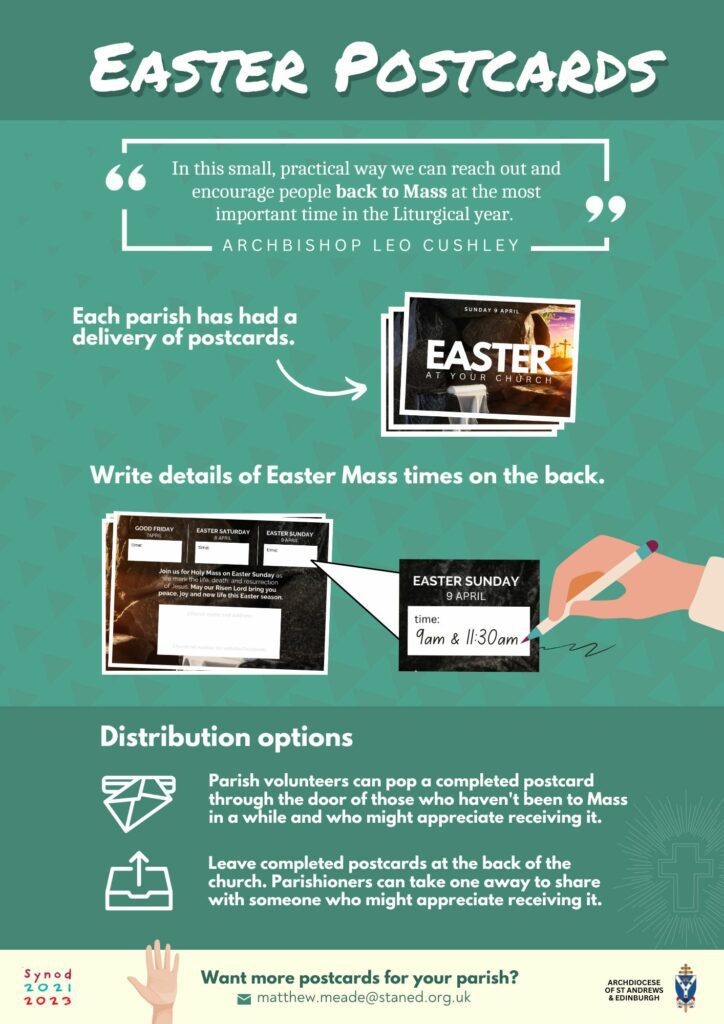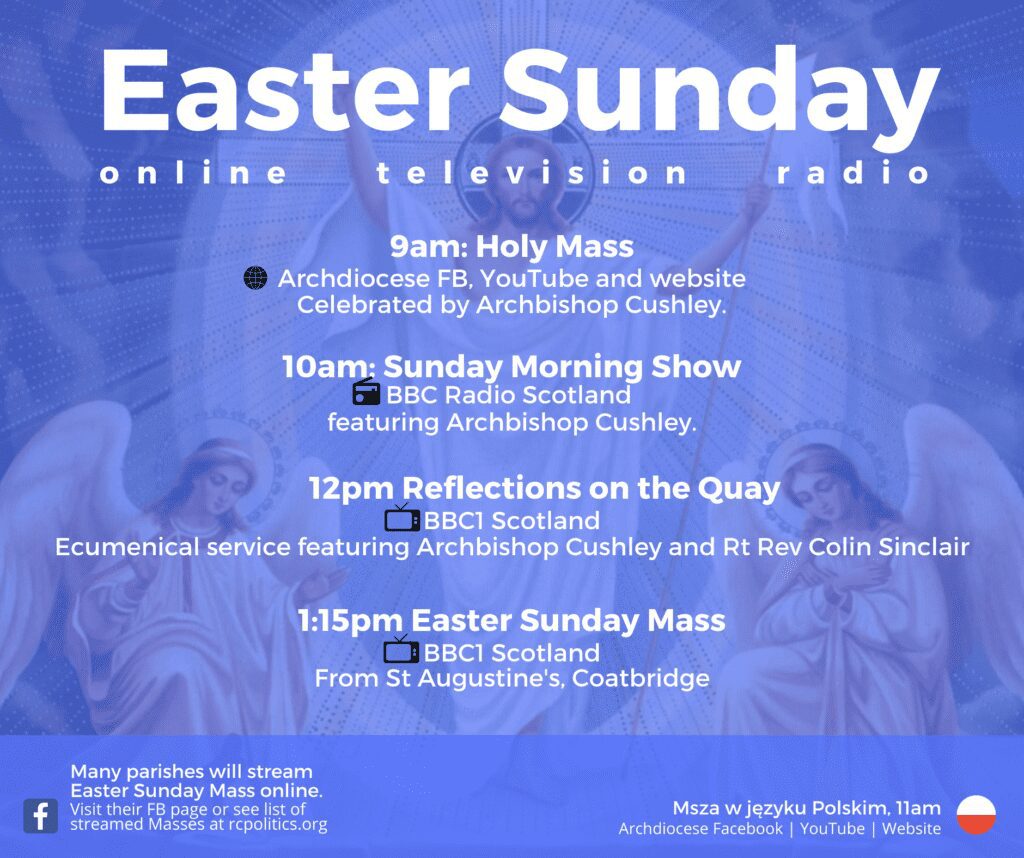Easter Sunday: 'Jesus our Life'
Happy Easter! Here is the homily of Archbishop Leo Cushley of St Andrews & Edinburgh, The Easter Vigil, 19 April 2025, at St Mary’s Metropolitan Cathedral, Edinburgh.
***
My dear friends,
A very happy Easter to you all!
The readings that we hear over the Easter weekend, from Genesis to Exodus to St Luke at the Vigil, to Peter and John running to the tomb on Easter Sunday, all these readings speak of life: the creation of life, the restoration of life, and the fulness of life that every human being seeks.
The story of Genesis and its first pages describe the creation of the universe and of life in particular, life in abundance and life’s essential goodness, and it is always heard at this time of the year.
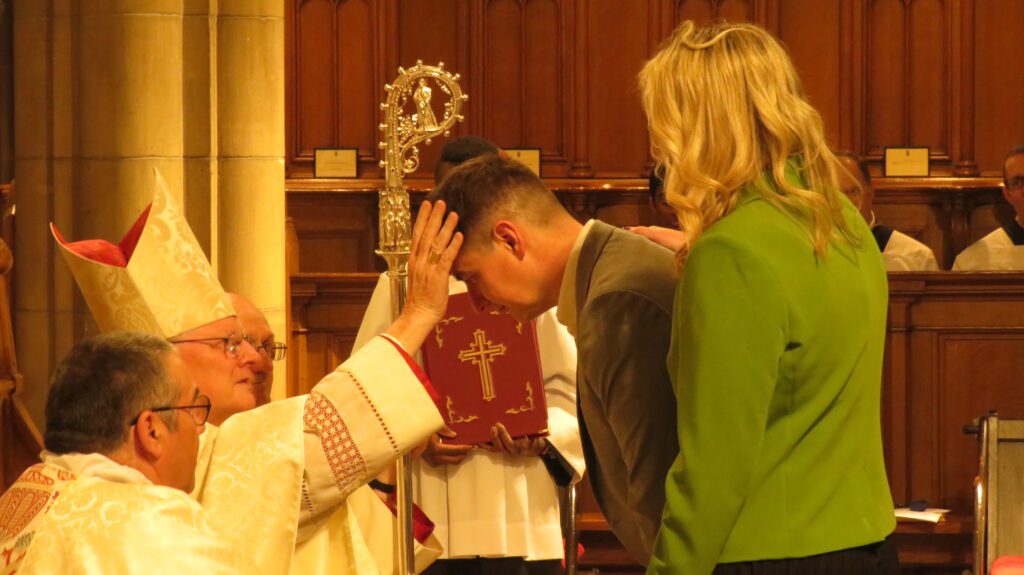
Life is good, whether it begins in the stars above or in standing water in a field, life is always, ultimately, a gift from God, and a reflection of our God who is good.But what is life without the freedom to enjoy it to the full?
In Exodus, the children of God are in Egypt; they’re alive but they’re not free, and so their passage from slavery to liberty, from death to life, becomes an iconic tale, to be treasured for all time, and that we always listen to willingly at Easter.
The passage through the Red Sea is symbolic of the liberating passage of Christ, leading us through death to life in Him, and it is always thrilling and deeply moving to hear it again, especially in the Easter vigil, as those who are about to be baptised are numbered among those crossing through the waters from death into life.
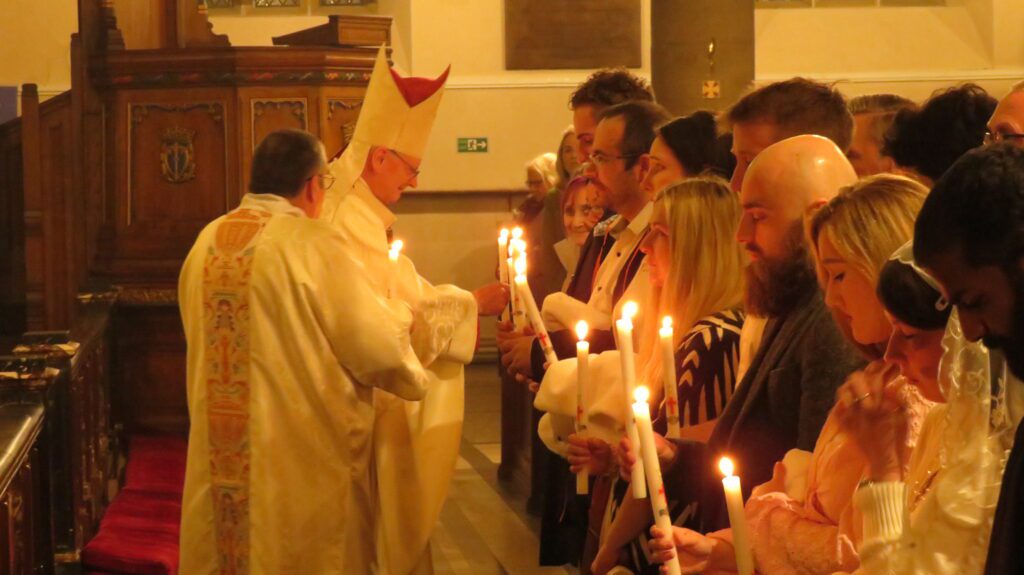
And, once we are free, what are we to do with our freedom, now that we have it? The Prophet Baruk tells us of the guard-rails that keep us safe in our freedoms: he tells of the laws of God, and he underlines that the God’s laws are the “commands of life”.
Tonight, as we gaze in fear and awe into the empty tomb...we begin to realise that Jesus is also our Life.
He says, Learn where there is wisdom, where there is strength, where there is understanding, in order to decide where to find length of days and of life. Length of days and of life. The laws of God are there to help us. And how to go forward with them? We need a path, a way to get there.
But the Way that leads to life, where are we to find it?
If we return to last Thursday night, and the Lord’s Supper, we first saw how The Way that leads to life isn’t a what, but a who. We heard Jesus describe Himself as the Way.
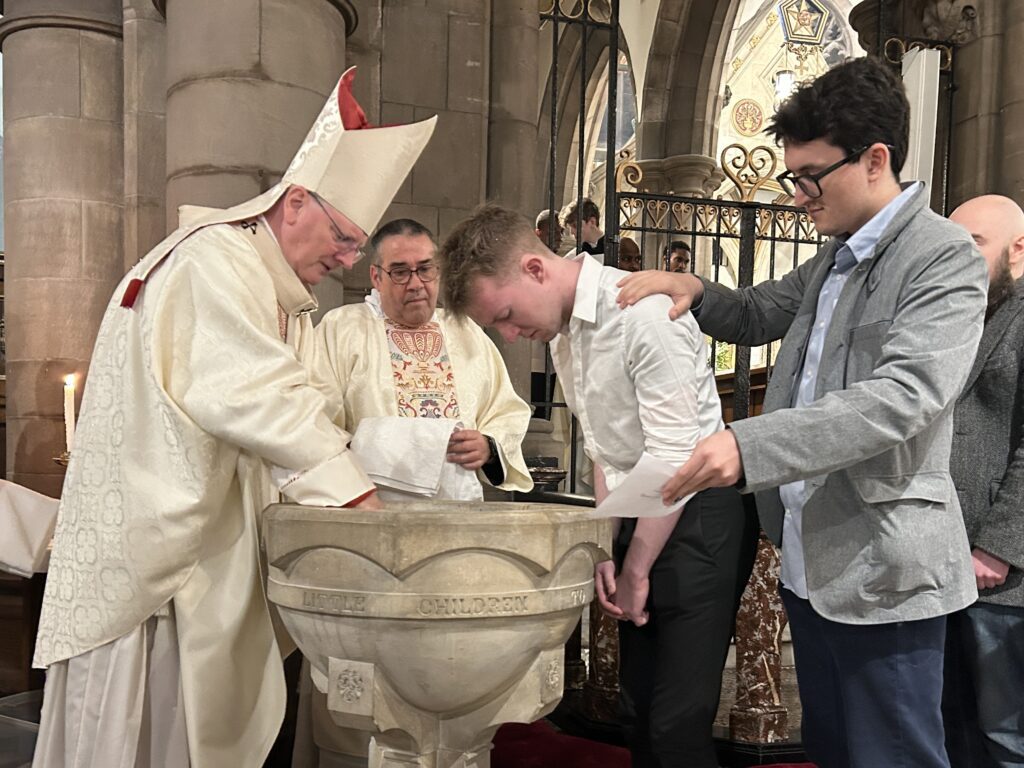
By following Him along the course of our lives, by staying close by Him, we will be following the way. The way to life is to follow Him, and to remain with Him.
On Holy Thursday, at the Last Supper, He becomes the Way, and He shows that, by accompanying Him on His passage through death to life, He is the Way.
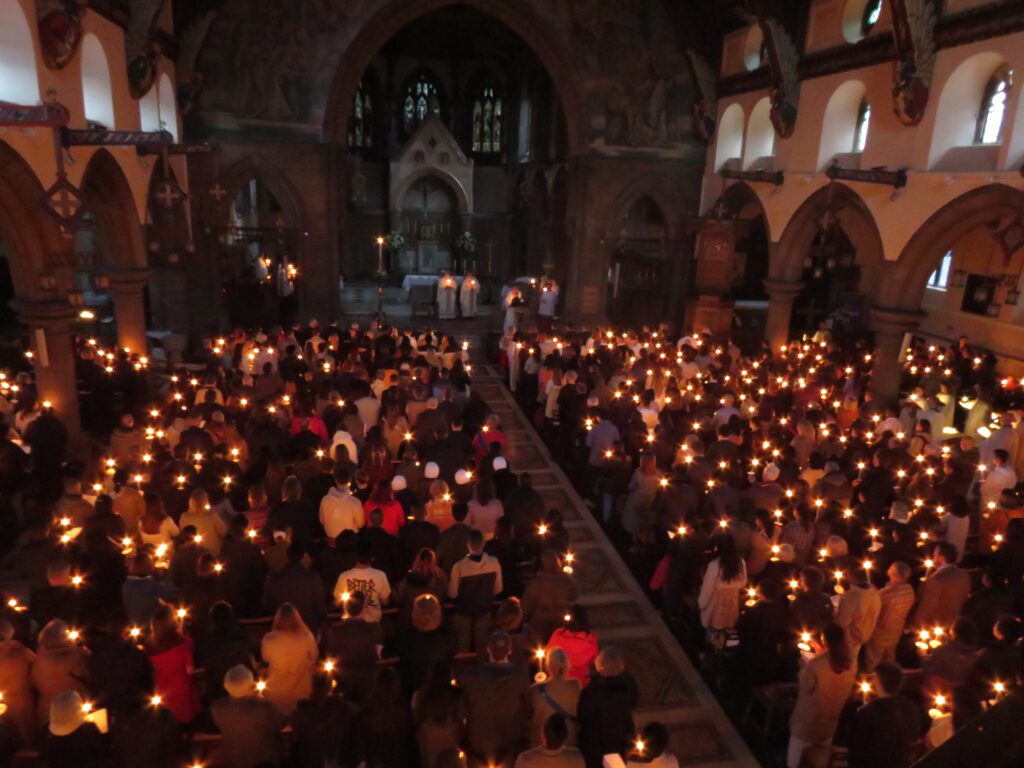
On Good Friday, we saw Him stand before Pilate, and surrounded by falsehood and injustice, Jesus is seen clearly to be the only truth, the only reality.
Jesus is the truth of God, the reality of God, condemned, falsely and cruelly, the Son of God, the creator of the universe, who takes the place of a murderer to give us life, who takes the place of a revolutionary to bring us peace. Jesus is the Way and the Truth.
And tonight, as we gaze in fear and awe into the empty tomb, and wonder what it all means, we begin to realise that Jesus is also our Life.
We accompany Mary Magdalene to the garden and find the body has gone.
With Peter and John, we go right into the tomb, we are struck silent, and it dawns on us, as it dawns on them all, that whatever happened here, Jesus is the Way and the Truth and the Life.
These words that He said to Thomas at the Last Supper, in front of all the other Apostles, the night before he died, become a stunning reality over these three days. Yet it is only now, at the empty tomb, that all the pieces fall finally into place.
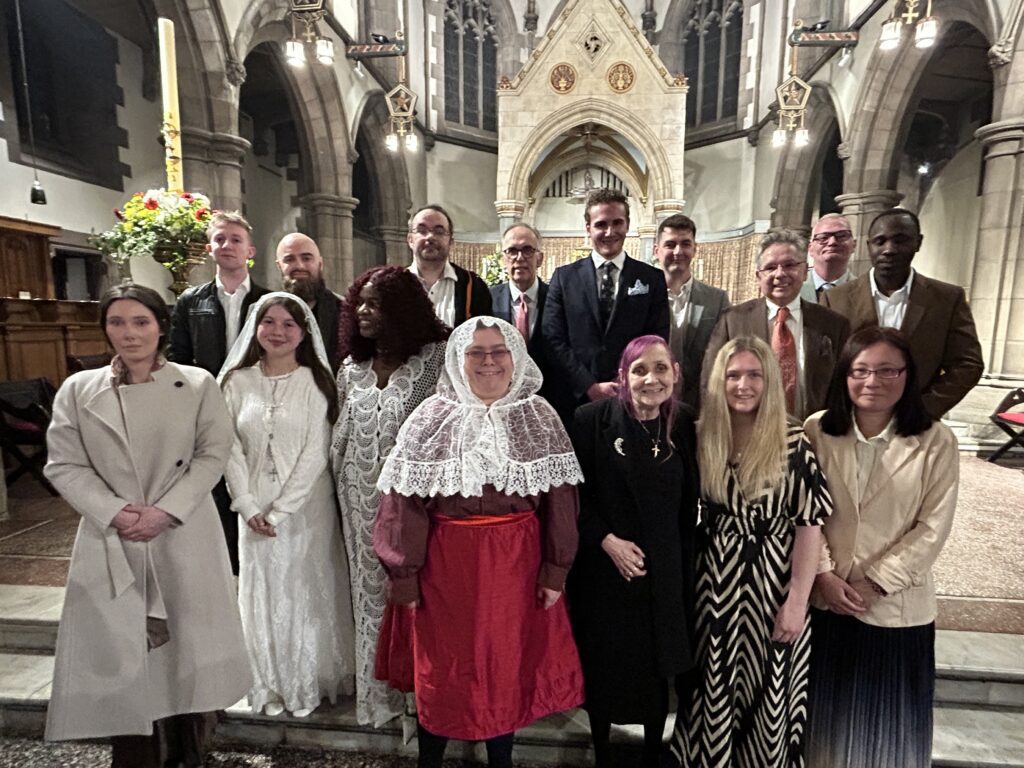
With Peter and John, we now see, and we believe. We realise with growing conviction and joy that Jesus Christ is our Life. He is the Life and the Lord of all creation.
On Holy Thursday, Jesus is the Way, our Eucharistic viaticum for our journey through death, even as He goes to the Cross.
On Good Friday, Jesus is the Truth that sets us free, even as He is helplessly nailed up to die.
Tonight, in the empty tomb, we realise that Jesus, the Way through death and the Truth of all time, is also the Lord of all Life – and we rejoice that through our faith and our baptism into His death we come to share in His life, and a life that we can live to the full.
A very happy Easter to you all!
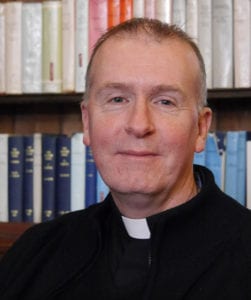 A
A  Alexander Peris, 20, is one of the group from St James' Parish who will become Catholic at Easter.
Alexander Peris, 20, is one of the group from St James' Parish who will become Catholic at Easter.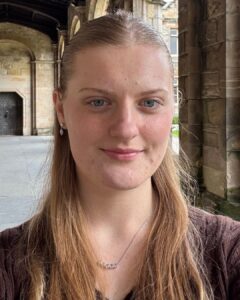 Jessica, from Milton Keynes, said: "I was raised in a Christian household, but it wasn’t until University that I decided to take my religion more seriously.
Jessica, from Milton Keynes, said: "I was raised in a Christian household, but it wasn’t until University that I decided to take my religion more seriously. Ilhan, from Istanbul, said: "My sister and I were raised irreligious, and so my knowledge of any religion was rather slim.
Ilhan, from Istanbul, said: "My sister and I were raised irreligious, and so my knowledge of any religion was rather slim.